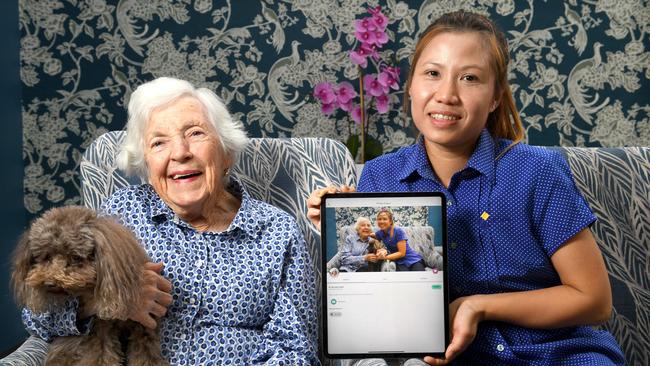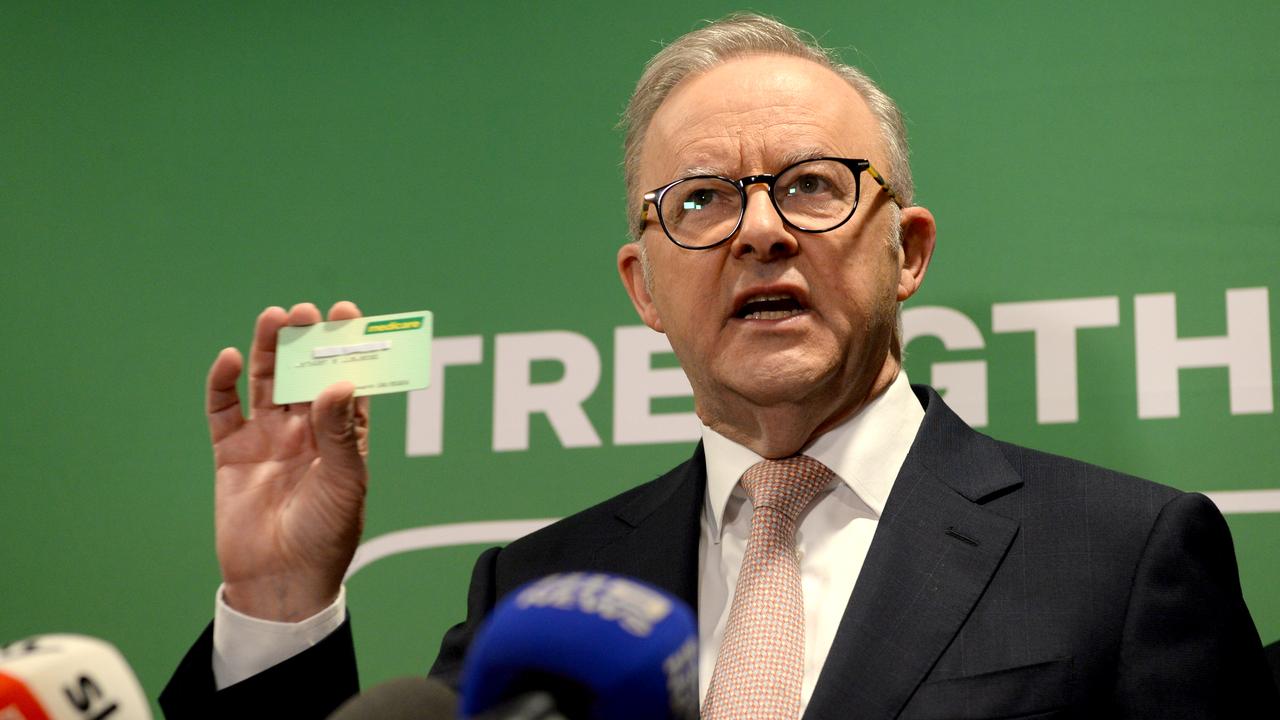Visitor controls to limit nursing home coronavirus risks
Strict rules limiting aged-care residents to two visitors at one time each day are being proposed.

Strict rules limiting aged-care residents to two visitors at one time each day are being proposed, as one of the nation’s biggest operators, Regis Aged Care, began locking down 63 nursing homes for two weeks.
The new guidelines on aged-care visits — proposed at Tuesday night’s national cabinet meeting — are aimed at preventing Australia’s most vulnerable from becoming infected by the coronavirus.
The government is set to unveil the full suite of updated guidelines for aged-care facilities on Wednesday after Scott Morrison and premiers were briefed by health officers on Tuesday night.
The Australian understands the Australian Health Protection Principal Committee, which comprises all state and territory chief health officers and is chaired by Chief Medical Officer Brendan Murphy, recommended there be no more than two visitors at one time per day for residents.
Some aged-care providers are already checking visitors’ travel and contact history, and entry points to facilities have also been reduced.
Aged Care Minister Richard Colbeck said the government would be guided by medical advice but acknowledged the AHPPC proposal could create issues for Australians in palliative care and their families.
“Some sensitivity on how those things are managed will be important,” he said. “What we want is for aged-care facilities to be safe places so limiting access limits the risk of the virus coming in.”
It comes as one of Australia’s biggest residential aged-care providers announced it had gone into lockdown from Tuesday for two weeks. Regis Aged Care, which has 7000 beds across the country, put in place a “no visitors” policy from 5pm on Tuesday but said loved ones of the very frail might be granted access in special cases.
“We understand there will be some exceptional circumstances where visitors can still arrange to attend the home with our facility managers (for example, end-of-life care) as long as they can demonstrate they are well, haven’t been overseas in the previous 14 days and haven’t been in direct contact with a person diagnosed with COVID-19,” the company said. “After this period we will reassess the situation, taking into account the best medical and public health advice available.
“This is a proactive step to protect the health and safety of our residents and staff.”
Aged Care Industry Association chief executive Luke Westenberg, whose members include residential aged-care providers, called for clear restrictions on non-essential entries and said the priority was to minimise the ways in which infection could enter.
While acknowledging the need for a flexible approach for those in palliative care, he said “the overriding principle should be ‘Don’t come in unless you have to’ ”.
Mr Westenberg said phones and video conferencing with relatives and friends should be used instead of face-to-face visits. “A lot of facilities have increasingly offered these services. While we acknowledge it’s not the same as a face-to-face visit, our advice would be reducing the risk of infection outweighs the distancing,” he said.
Council on the Ageing chief executive Ian Yates has said the elderly must have “appropriate access” to loved ones amid the coronavirus crisis, pointing out social isolation could have major physical and mental health impacts. He said he was more worried about standards in home care as those providers were not used to the same level of infection control as residential facilities.
Previewing Wednesday’s announcement, Health Minister Greg Hunt said there would be a reduction in visitor numbers at aged-care facilities but he did not want them stopped altogether.
“What has been contemplated is making sure that rather than an increase, there is a decrease and a reduction in numbers but not a stopping of flow,” he said.


